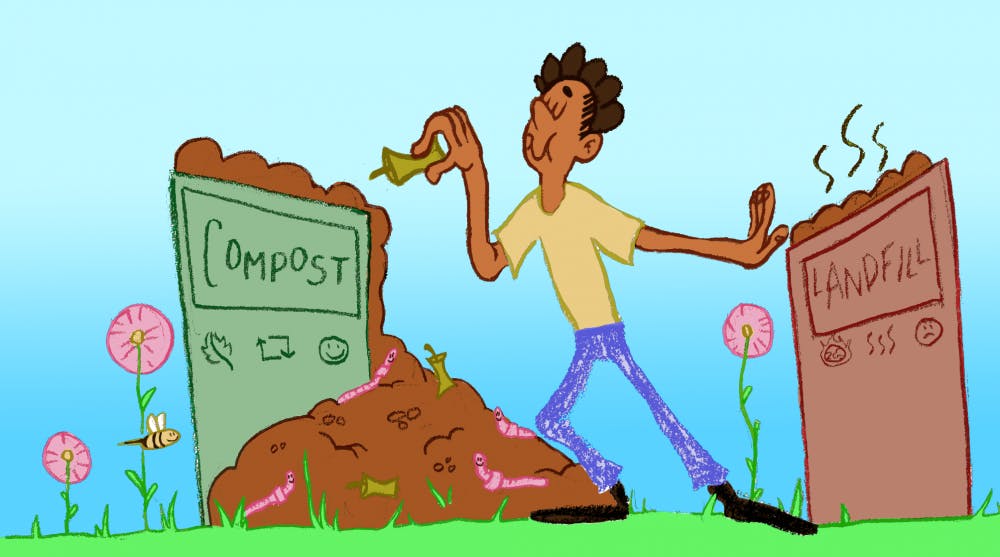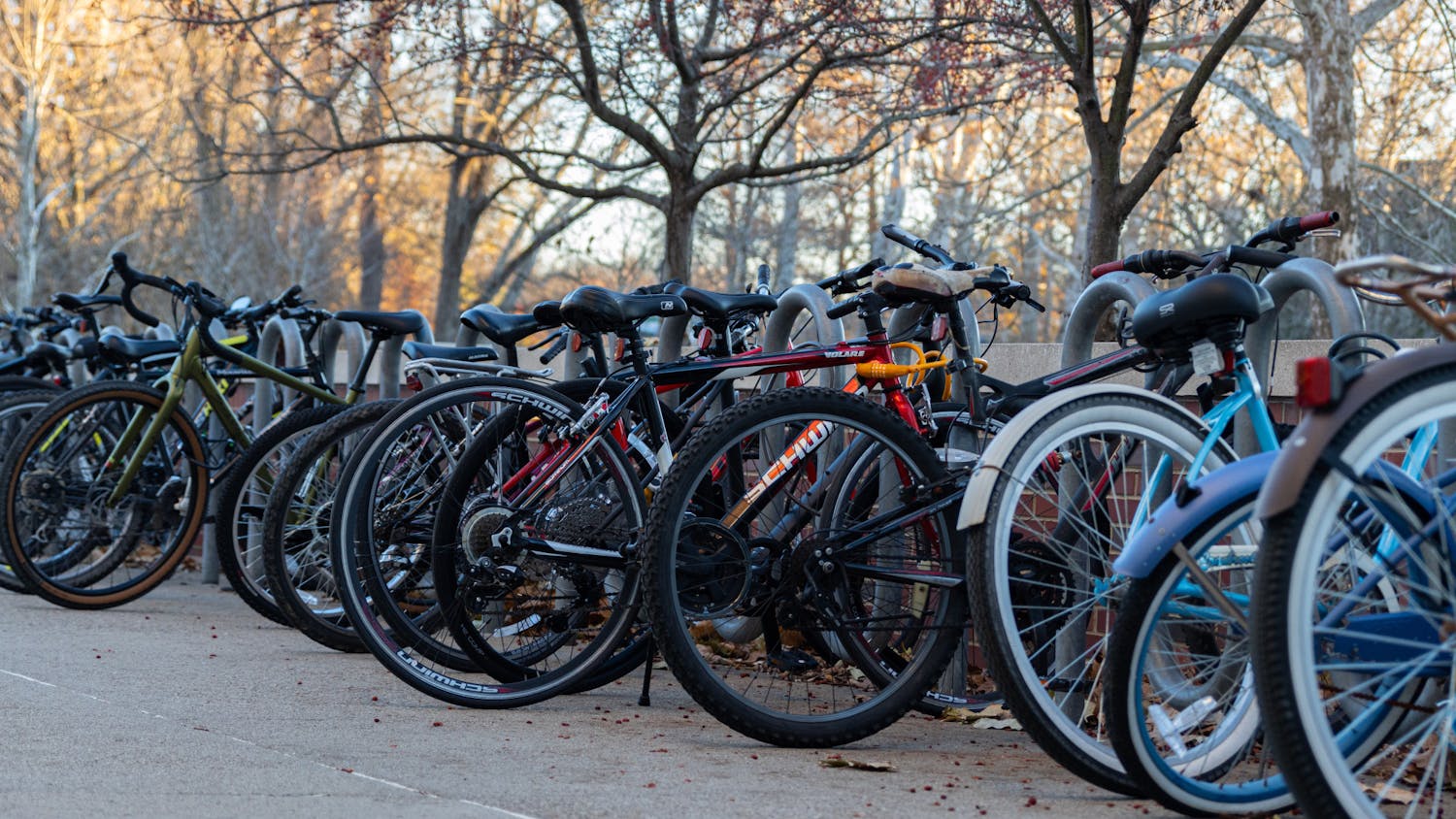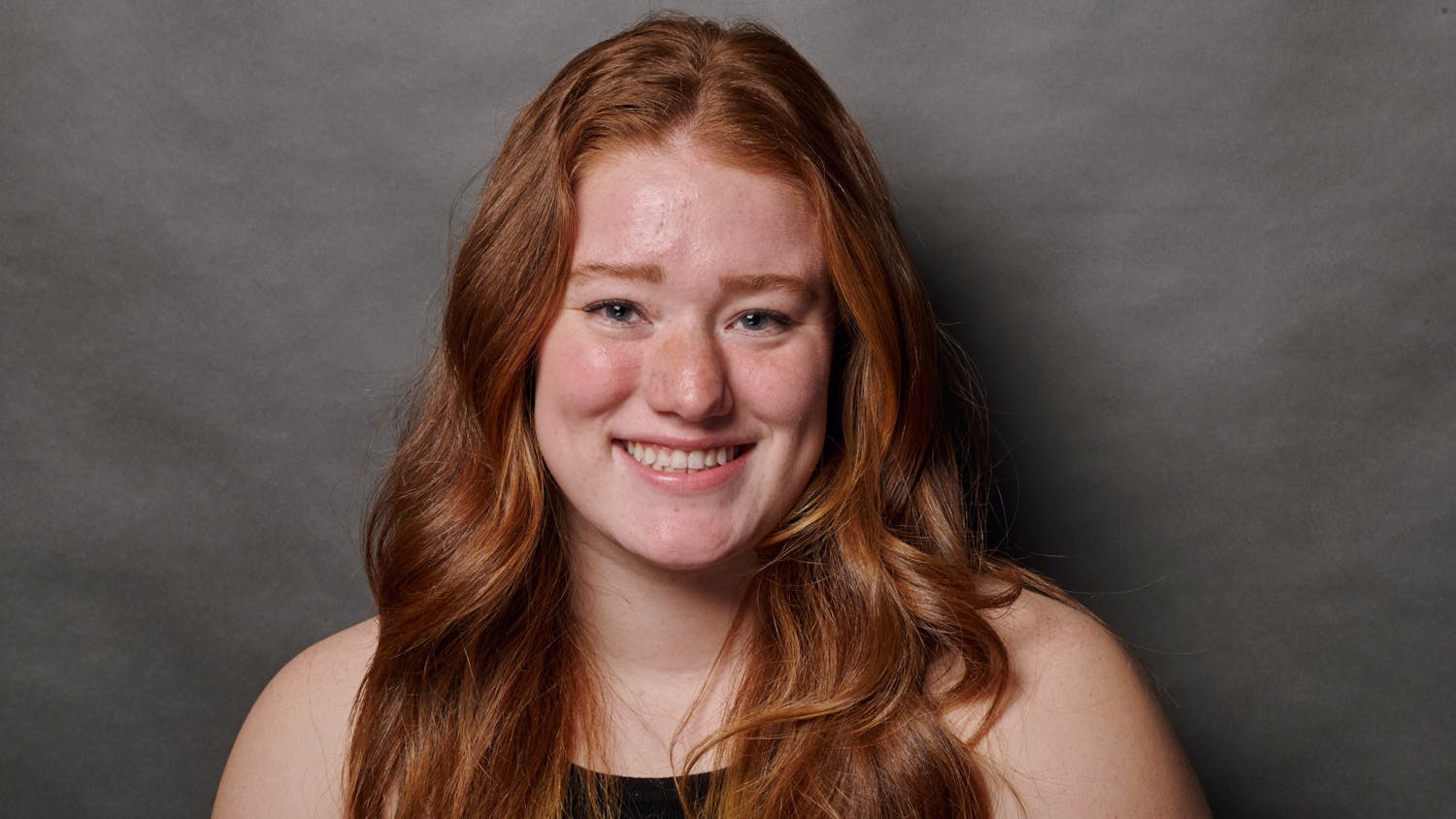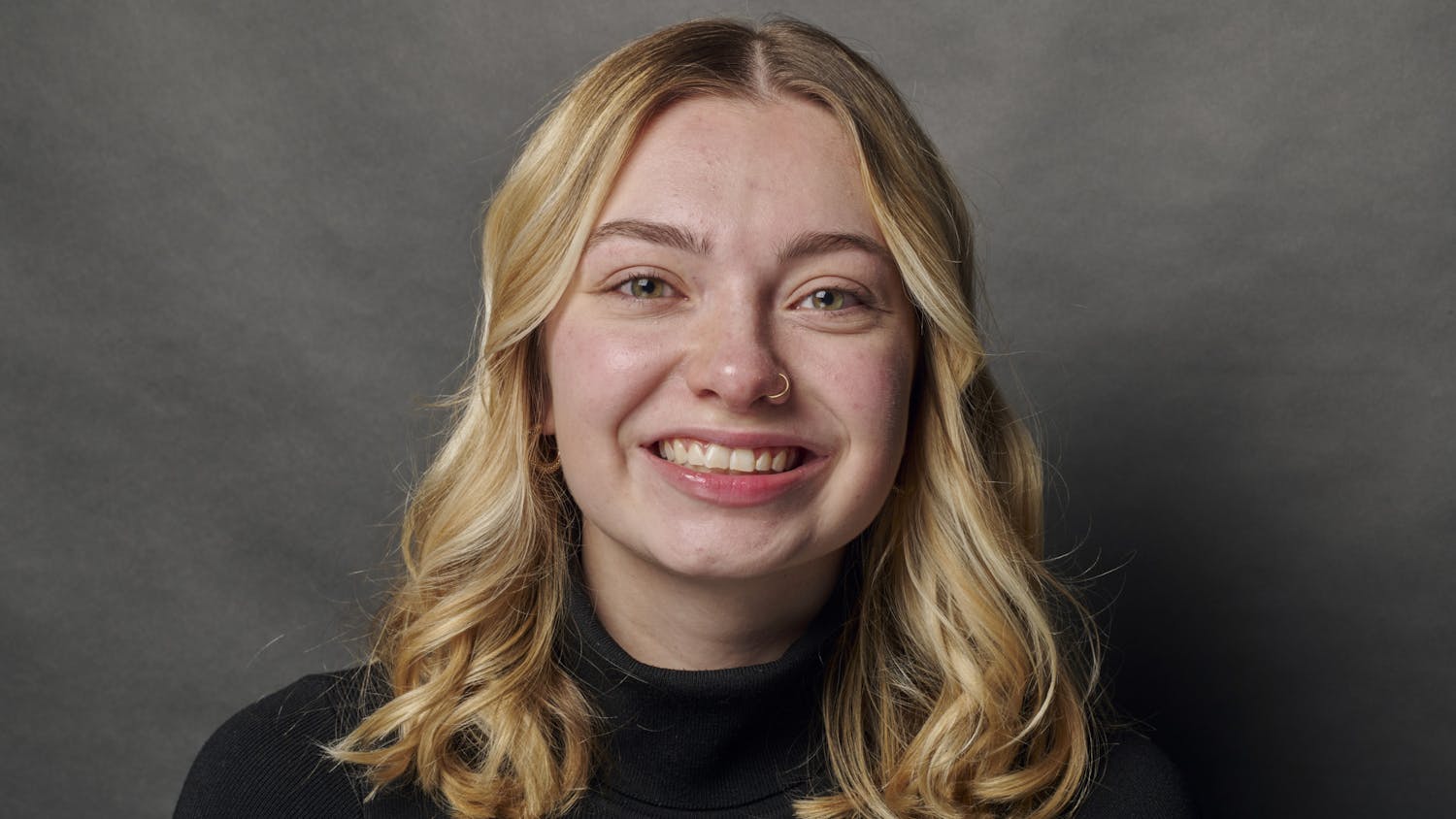On April 5, Winter Wilson woke up fueled by her passion for environmental activism.
At 5 a.m., she and other members of Ohio University’s Sierra Student Coalition rolled out of bed. As the sun started to creep into the sky, the activists hung banners with phrases such as “climate change is real” and “divest for our future.”
Wilson, a freshman studying journalism and environmental studies in the Honors Tutorial College, gave new life to OU’s Sierra Student Coalition this semester. The student organization is a branch of the Sierra Club’s national network of students who advocate for environmental justice.
“I think it’s important … that there is a collaborative student organization to push for greener initiatives to ensure that everybody has a future," Wilson said.
The small band of activists are doing what they can to make their voices heard about environmental problems at a large university. Athens is home to many people who dedicate much of their time, energy and resources to creating a greener campus environment.
Institutional Instruction
In 2005, OU added a new department to its campus called the Office of Resource Conservation. The office worked to promote sustainability across campus, and it was eventually renamed the Office of Sustainability.
The Office of Sustainability writes the Sustainability Plan for the university. The office then uses the plan to outline its courses of action to achieve its goals in coordination with other departments across campus.
The office considers its actions with three things in mind: the community, the environment and the economy. The office works to foster relationships with groups across campus, including the College of Business and Culinary Services.
“Sustainability is a holistic conversation,” Annie Laurie, the director of sustainability, said. “It’s not just for environmental studies students. ... Every single student can relate to this. For me, that has been a really exciting change.”
Another institutional-level program aiming to spread ecological friendliness is the Common Experience Project on Sustainability. Its mission is to educate faculty and staff across all disciplines on how to “green” their curriculum and teach students on how to implement sustainable habits.
Myriad events are hosted each year through the project, including lectures by speakers from environmentalist organizations, a “green jobs” panel and the annual Sustainability Film Series.
“We try to make it inviting, educational, but also engaging for students,” Loraine McCosker, coordinator for the Common Experience Project, said. “There’s a lot to show. There’s a lot to do. The opportunities are endless.”
Wisdom Without Waste
Each August, OU welcomes a few thousand new faces and, each spring, sends a few thousand on their way. That presents a particular challenge to those who teach and promote sustainable habits on campus.
“It’s a constant challenge because you’ve got new students coming in every year, and you have to sort of convince that group … that we want to have this particular type of environmental culture on campus where we’re not going to be wasteful,” Geoff Buckley, a professor of geography, said.
Buckley teaches an introduction to environmental geography class, during which he uses some innovative activities to encourage students to be more mindful of their personal environmental impact. For instance, in one assignment, students must keep a “waste journal” in which they record everything they throw away for an entire week.
Nicole Kirchner is an environmental specialist who works on the Ohio Zero Waste Initiative. Her organization’s mission is to help the university become an institution that produces zero waste. To achieve that, OU must divert 90 percent of its waste from the landfill through recycling, upcycling, composting and other similar practices.
The Zero Waste Initiative has a wide range of programs to promote waste reduction in coordination with several other campus organizations. Kirchner said the biggest challenge is making students and staff aware of those opportunities.
“At a university, it might seem kind of counterintuitive, but we need to do a lot of education,” she said. “We have a lot of services available, but making sure everybody knows how to use them, and also where they’re at, is important.”
Kirchner said she believes students can play an important role in helping their peers to live more sustainably as well.
“You’re going to get positive peer pressure for doing good things, so I think there’s a lot of interpersonal learning on campus,” she said.
Calls for Action
On a politically active campus like OU, students play a role in pushing the university to make the changes they want to see regarding sustainability.
Sarah Pinter, Student Senate’s environmental affairs commissioner, used the student body’s interest in social justice to spark an interest in environmental justice.
In late March, Student Senate hosted the Environmental Justice Summit in coordination with several other organizations, including the Common Experience Project and the Zero Waste Initiative. The summit included several speakers such as a renowned environmental activist, a film screening and an “Eat Local for Food Justice” fair.
“I think (Student Senate has) this advantage of being somewhere between the student activists and being a university office,” Pinter, a senior studying mathematics and specialized studies with a focus in statistical environmental science, said. “We can’t necessarily be in the streets marching for anything, but we can also say, ‘this is what we want to see,’ and put forward a bill to the university that says this is what we expect you to do now.”
The mission of the activists of the Sierra Student Coalition is primarily to encourage the university to divest from fossil fuels. With their banners and other future demonstrations, Wilson said the group hopes to inspire the university to take a stronger stance against nonrenewable energy.
“We have many ties to fossil fuels, but, at the same time, I think a lot of students on campus recognize that climate change is really an important issue,” she said.
Room to Grow
Despite the years of work that various organizations have put in, the university’s efforts aren’t quite meeting the mark for some people. A particular point of concern is the set time limit for carbon neutrality, or releasing no carbon dioxide into the atmosphere unless it is offset by practices like planting trees, which is currently the year 2075.
Wilson said 2075 is too far off and that it is imperative that total divestment is set for a sooner date.
“There are many more things that the university could be doing to improve and to make green initiatives happen,” Wilson said. “I think with this kind of organizing, hopefully we can push Ohio University to maybe attack some of those issues sooner.”
Buckley was part of the team that developed the first version of the Sustainability Plan in 2011 and is unsatisfied with the 70-year timeframe the university chose in 2005.
“Who’s going to be around in 2075?” he said. “That’s kind of an easy date to pick. Let’s say 2030, and if we miss it, we miss it. But we really gotta move in that direction.”
Buckley is optimistic. Each year, more students enter his class already knowing the basics of sustainability and the importance of environmental consciousness.
“I do have faith in younger people that there’s potentially a brighter future,” he said.






